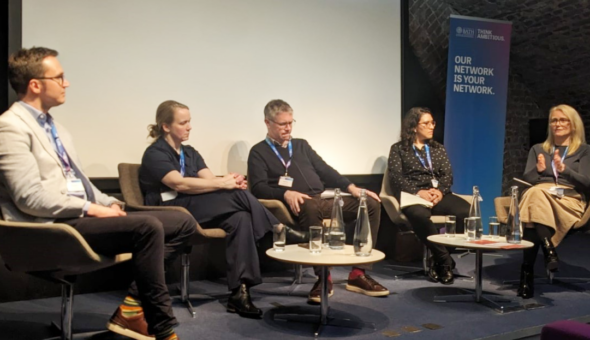As COVID-19 causes widespread disruption, how are businesses responding to the crisis? Michael Rogerson looks at how big brands are behaving, and wonders about the long-term implications of these choices.
Barely a decade has passed since politicians last reminded us that “we are all in this together” while bailing out profligate companies. With panic-buying splashed across the headlines, that sentiment may ring hollow once more. Although some companies are exhibiting the worst characteristics of capitalism, others are indeed putting their money where their mouth is, and behaving as members of the ‘big society’.
The altruistic approach
After the financial crash, the big banks are much maligned. They are often held up as examples of companies who prioritised their own profit above the good of society. However, those banks bailed out by the government in 2008 now find themselves in a stronger financial position as COVID-19 begins to impact the economy. Many are even leading the way in supporting those worst hit – providing a buffer as workplaces shut and employees go off sick. RBS (still taxpayer-owned having been rescued 12 years ago), along with TSB & Lloyds, have promised to remove certain account charges and offer a ‘mortgage holiday’ for sick customers.
Companies in the food industry have also responded positively. Carluccio’s, Pret, and Greggs are offering free hot drinks and significant discounts on food to frontline workers such as those in the NHS. Firms such as Leith Gin are temporarily suspending spirit production to make hand sanitiser as supermarkets begin to run out. Pernod Ricard has offered the pure alcohol that would ordinarily go into its drinks to companies producing cleaning products. Some service companies have taken even more direct steps to help, with Gary Neville and Roman Abramovich both offering their hotels for use by NHS workers.
Uncertain prospects and unfair remuneration
However, the crisis has revealed the precarity of many UK workers. In the wake of Brexit, debate continues over what constitutes ‘skilled labour’, meanwhile employees of the nation’s largest supermarket chains have suddenly been dubbed key workers, meaning that they are deemed essential to the functioning of society. They are also now in one of the groups most likely to be infected, and to make matters worse none of those firms pays the Living Wage.
There is also a lack of consistency in how companies are also responding to employees falling sick and having to ‘self-isolate’. Workers in the ‘gig economy’ are known to have uncertain employment conditions – in many firms this includes a lack of sick pay. Many hospital porters and cleaners are employed on minimal terms, although NHS contractor ISS has agreed to pay full wages for staff having to stay home. While legally all employees are entitled to sick pay, many are being told that they will not be paid while they are not at work. The moral element of this is not the only concern, as workers with insecure job prospects are more likely to work while sick, spreading the virus further.
Some businesses have been criticised for asking employees to take time off, as demand for their services drops. Virgin Atlantic has asked workers to take eight weeks unpaid leave while simultaneously asking the government for a bailout. In the US, airlines have requested a rescue package from the federal government despite spending 96% of their available cash on share buybacks since the last crisis. And Tim Martin, Chairman of Wetherspoons, has called the World Health Organisation’s advised steps to prevent the spread of the virus 'over the top' and has asked the government to allow pubs to stay open.
Companies who prioritise their bottom line over the wellbeing of their employees risk being viewed negatively both now and once the crisis is over. Waterstones was forced to close having faced severe criticism for remaining open and putting staff at risk. And research suggests that, while well-liked firms can use that reputation to assuage angry consumers, merely well-known firms have significantly more work to do in protecting the intangible asset that is their brand.[i] Potentially amplifying this is the idea that firms with a history of crises, often fail to learn and respond poorly to a collective crisis.[ii] Sports Direct - which forced Michael Gove to issue a specific ‘do not open’ warning - is among those firms that will have to work harder to regain stakeholder trust given its poor record on corporate behaviour. This tells us that there may be a short-term financial benefit of making ‘selfish’ corporate choice, but the ‘riskier’ approach of doing the right thing will pay its way in the end.
While many firms are demonstrating a level of corporate citizenship needed in difficult times, it seems that there will always be some which demonstrate that, while we are all in this together, some are more together than others.
[i] Wei, J., Ouyang, Z. & Chen, H., 2017. Well Known or Well Liked> The Effects of Corporate Reputation on Firm Value at the Onset of a Corporate Crisis. Strategic Management Journal 38: 2103-2120
[ii] Comyns, B. & Franklin-Johnson, E., 2018. Corporate Reputation and Collective Crises: A Theoretical Development Using the Case of Rana Plaza. Journal of Business Ethics 150:159-183
Photo by dhaya-eddine-bentaleb on Unsplash
Respond



